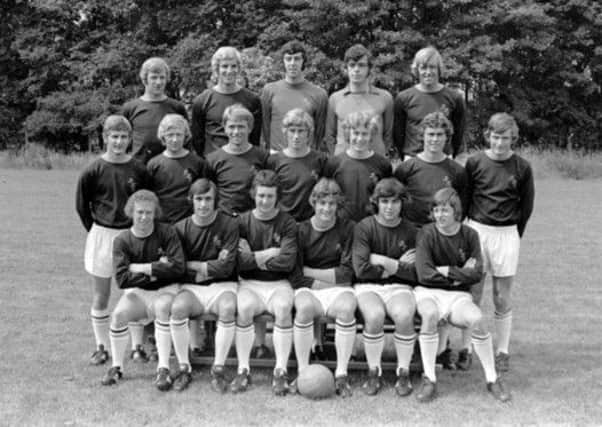Former Claret Dave Thomas delighted to see old clubs slugging it out at the top


Fast forward 41 years, and could the same thing happen again?
Back in October 1972, the Clarets sold winger Dave Thomas to the Loftus Road club for what was a Second Division transfer record of £165,000.
Advertisement
Hide AdAdvertisement
Hide AdAs it turned out, Burnley, under Jimmy Adamson, strode to the Second Division title, with the Rs joining them in the top flight as runners-up.
Back in August, Burnley sold 28-goal top-scorer Charlie Austin to the title favourites Hoops for a fee in the region of £2.25-4m.
And just over a quarter of the way into the league season, the sides meet at Turf Moor tomorrow, with the Clarets leading the table by two points from Harry Redknapp’s men.
Thomas will be at the game tomorrow, and he is looking forward to watching his former sides in action: “I haven’t seen much of Burnley but I’m slightly surprised to see them up there - although I’m delighted, I’ve always looked out for their results.
Advertisement
Hide AdAdvertisement
Hide Ad“The table doesn’t lie, they’re resilient, have good forwards and I’m expecting a very tight game.
“QPR are very solid and don’t concede many goals.
“I’d imagine both sides would be happy with a draw, but it could go either way.”
Looking back at his switch to London, the same route Austin has followed, Thomas admitted: “It’s amazing really how it’s working out again.
“It’s bizarre. Back then I was having a few problems with the manager Jimmy Adamson, I played in the first 10 games, but while I respected Jimmy as a coach, we didn’t get on, I wasn’t a fan of his management style.
“I wanted to leave, but didn’t want to go down south.
Advertisement
Hide AdAdvertisement
Hide Ad“But the club told me they’d agreed a fee with QPR and I set off for London - Brian Miller took me to the train station, and off I went.
“I ended up playing in a good side with Terry Venables, Stan Bowles, Gerry Francis...it was a risk for me, but it proved the best six years of my career, playing for a fantastic team.
“But I had six great years at Burnley as well - and it is a great club - before leaving at 21.
“The club was great at bringing the kids through, and I have great memories.
Advertisement
Hide AdAdvertisement
Hide Ad“But they used to have to sell a player a year to balance the books.”
That continues to be a familiar theme, with Austin the latest to boost the coffers at the club.
But, for Thomas, who helped Burnley win the FA Youth Cup in 1968, he is disappointed to see the conveyor belt grinding to a halt, with a perceived lack of young British talent coming through the ranks: “Burnley used to breed players, but it seems to be a problem in English football now, with Greg Dyke’s FA commission trying to help bring players through.
“You have to be careful though, when I went to Vancouver Whitecaps, they had a homegrown rule, where you had to have six homegrown players, but you don’t want top quality players to leave the country because of that, because the standard will suffer.
Advertisement
Hide AdAdvertisement
Hide Ad“I came into the England side in 1974, and it was talked about then as well. The problem is, when I was playing, if you deserved a chance, you got one, but now, when clubs are expected to win every week, with so much money at stake, not everyone is prepared to take a chance with younger players.
“The mentality in this country, even at school and youth level, is ‘did you win?’, not ‘how did you play?’, and players get a fear factor with that, getting rid of the ball rather than making a mistake.
“We have to play out from the back, not boot the ball away, that’s Mickey Mouse football to me.
“Young kids are coached from being six or seven, and they can be coached out of it, where they don’t enjoy it.”